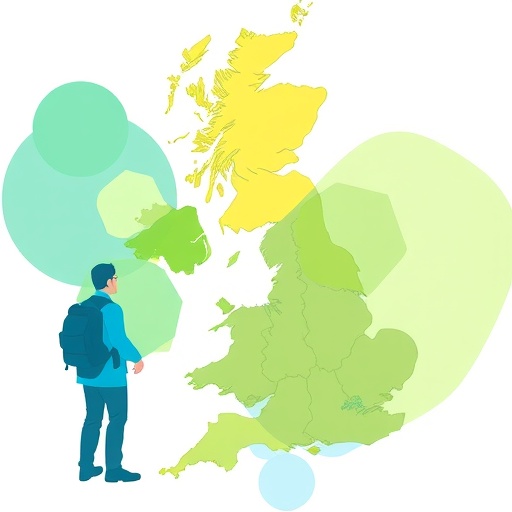
In a critical examination of the current landscape of research capacity, capability, and culture within UK local authorities, a groundbreaking study conducted by Bell, Chapman, Ashton, and colleagues sheds light on various deficiencies and opportunities for enhancement. This comprehensive investigation, which took place within the framework of Health Determinants Research Collaborations, serves as a pivotal resource for identifying how local authorities can bolster their effectiveness in public health research and intervention strategies.
The significance of this study lies not only in its findings but in how it encapsulates the voices of evaluators who have been interfaced with local authorities. By embedding these evaluators into the collaborative health research efforts, the research team was able to garner first-hand insights into the operational challenges and potential solutions regarding public health initiatives. Their experiences reveal the complexities of translating research into practice while fostering a culture of continuous improvement and evidence-based decision-making.
One of the major conclusions drawn from this study is the pronounced inconsistency in research capacity across local authorities in the UK. While some entities possess a robust capacity for conducting and utilizing research, others struggle to integrate such capacity into their day-to-day operations. This disparity highlights the immediate need for standardized frameworks and robust support systems that can usher local authorities toward substantive public health advancements.
Moreover, the culture surrounding research within these authorities is often marked by hesitancy, which is echoed in the evaluators’ reflections. Many local authorities feel overwhelmed by the volume and complexity of existing research. Consequently, this leads to selective engagement with evidence-based practices, which risks perpetuating ineffective policies and interventions. Addressing this challenge involves fostering an environment where research is not perceived merely as an academic exercise but as an essential component of public service and community health improvement.
The evaluators also emphasized the necessity for capacity-building initiatives tailored to the unique contexts of individual local authorities. It is not enough to adopt a one-size-fits-all approach; rather, programs should be designed to account for the specific needs and existing strengths of each locality. Customizable training and support mechanisms can empower local authorities and enhance their capability to conduct actionable research that directly benefits their communities.
In terms of fostering a research-friendly culture, the role of leadership within local authorities emerges as a crucial determining factor. Leaders who champion research and its integration into public policy create an environment conducive to experimentation and learning. Such leadership can transform the hesitance surrounding research into a culture that celebrates inquiry, innovation, and evidence-based strategies while promoting accountability in public health initiatives.
Data sharing is another crucial area highlighted in the study. The evaluators observed that many authorities possess valuable datasets that, if utilized effectively, could lead to significant public health insights. However, issues surrounding data management, privacy, and inter-organizational collaboration hinder the potential of these resources. Building strong partnerships between local authorities and research organizations can facilitate data access and sharing, leading to more comprehensive health understandings and robust interventions.
As the UK grapples with an array of public health challenges—from the lingering impacts of the COVID-19 pandemic to escalating health inequalities—the imperative of embedding research within local governance structures has never been more pressing. The determinants of health are multifaceted, intersecting with various sectors and demographics. Effective responses require not only knowledge but also a commitment to engaging with research that can drive sustainable change in population health outcomes.
Furthermore, the reflections provided by the evaluators also underscore the value of using participatory methods in health research. Engaging local communities in the research process not only enhances data relevance but also helps foster trust between public health officials and community members. When people see themselves as active participants in the research that affects their lives, it lays the groundwork for more effective health interventions that resonate with community needs and preferences.
Ultimately, Bell and colleagues’ investigation acts as a clarion call for institutional reform across local authorities in the UK. By acknowledging the barriers that currently impede research integration and capacity-building, future initiatives can be tailored towards fostering an ecosystem where research thrives and translates into tangible public health outcomes. The study presents a roadmap for local authorities to enhance their research utilization, thereby improving health policies and ultimately contributing to better health for all citizens.
The implications of this research extend beyond the confines of academic discussions. Policymakers, health professionals, and community leaders must come together to act on these findings, ensuring that local authorities not only thrive in research capacity but emerge as leaders in public health innovation. The collaboration between evaluators and local authorities showcases a promising pathway for nurturing a research culture that is responsive, adaptive, and permanently integrated into the framework of public health governance.
In conclusion, the embedded evaluators’ reflections are a vital resource for local authorities striving to enhance their research culture and operational capacities. By embracing their insights and recommendations, there lies a unique opportunity to transform public health practices, enhance community engagement, and improve population health outcomes. The journey towards a health-focused research culture is challenging but essential, and local authorities must seize this chance to evolve and meet the pressing health needs of their populations.
Subject of Research: Research capacity, capability, and culture in UK local authorities.
Article Title: Baseline assessments of research capacity, capability and culture in UK local authorities: reflections from evaluators embedded in Health Determinants Research Collaborations.
Article References:
Bell, L., Chapman, R., Ashton, C. et al. Baseline assessments of research capacity, capability and culture in UK local authorities: reflections from evaluators embedded in Health Determinants Research Collaborations.
Health Res Policy Sys 23, 68 (2025). https://doi.org/10.1186/s12961-025-01323-x
Image Credits: AI Generated
DOI: 10.1186/s12961-025-01323-x
Keywords: Research capacity, public health, local authorities, health policy, community engagement.
Tags: challenges in public health implementationenhancing local authority effectivenessevidence-based decision-makingfostering research culture in local governmentshealth determinants research collaborationsimproving public health interventionslocal authority research capabilityoperational challenges in health researchpublic health research initiativesresearch capacity in UK local authoritiesstandardized frameworks for research capacitytranslating research into practice





